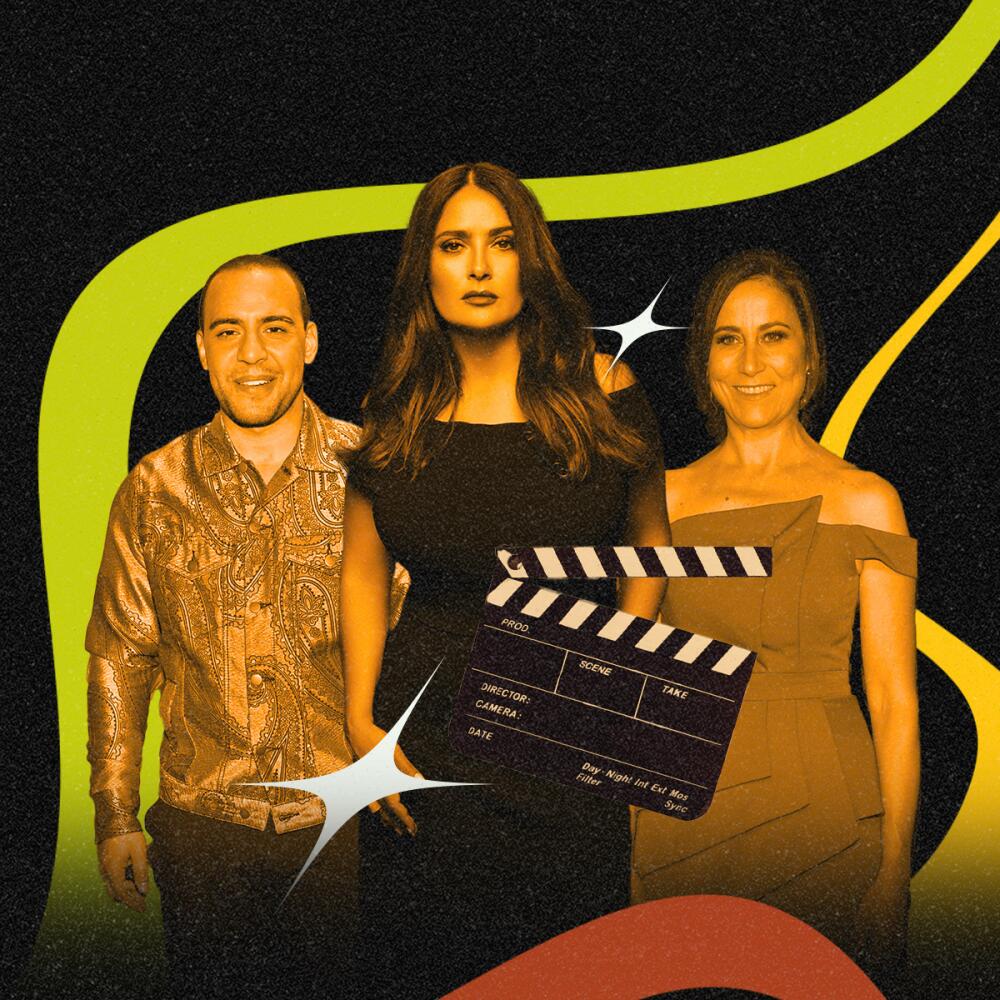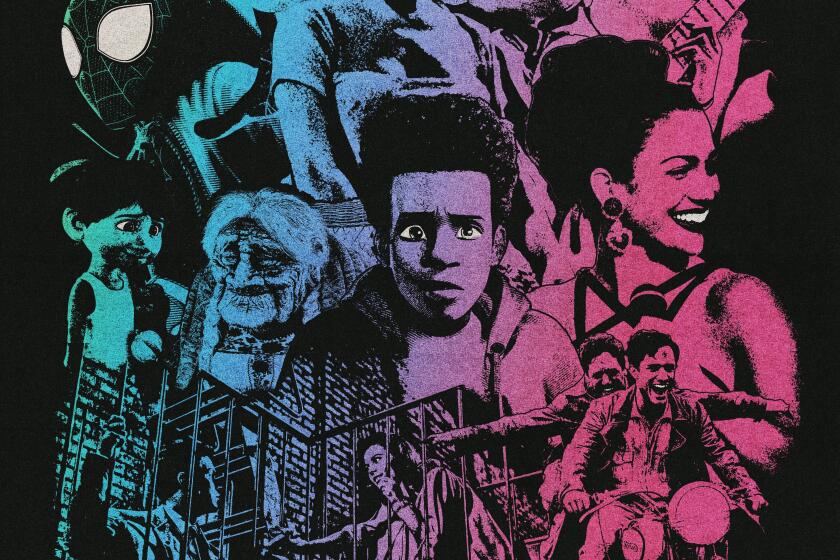
- Share via
Films by and about Latinos have often been left out of historical conversations including the Library of Congress’ National Film Registry. But Rep. Joaquin Castro (D-Texas), along with the Congressional Hispanic Caucus, has been trying to change that.
Castro has been working for years to help increase Latino representation in multiple industries across the U.S., including entertainment. Last week he sent a letter to Librarian of Congress Carla Hayden and the National Film Preservation Board listing 27 Latino films that should be considered for this year’s selection.
The goal of the registry is to select films that showcase a variety of range and diversity of American film heritage.
“This is my attempt and the Hispanic Caucus’ attempt to celebrate their contributions so that people will rightfully see us for something other than just the stereotypes,” Castro said. “As an industry that is purported to be incredibly culturally progressive in all kinds of causes, [the entertainment industry] has in fact been regressive and detrimental to the development of new voices, and the Latino community has paid the price of that exclusion.”
Latinos have been historically underrepresented on screen, and while the mission of getting more Latinos in movies continues, we wanted to highlight films we connect to. From Latino classics to ‘Latino-coded,’ here are the staff picks.
Castro said that the lack of representation on the registry is harmful not only to the Latino community, but also to other marginalized groups. He said he carefully selected films that break common stereotypes placed on the Latino community.
“Given the film industry’s continued exclusion of Latinos, we must make a special effort to ensure that Latino Americans’ contributions to American filmmaking are appropriately celebrated and included in the National Film Registry,” Castro said in his letter.
Every year the registry adds 25 films from the list of nominees and in recent years has increased emphasis on films by people of color and women. Even with this increase, out of the 850 titles on the registry, only 24 of them are Latino films.
Ana-Christina Ramón, the inaugural director of the Entertainment and Media Research Initiative at UCLA, has dedicated much of her work to researching access and equity in the entertainment industry. She said that including Latino films on the list of nominees and in the registry is crucial.
“Latinx people have been living here since before it was the United States and they are part of the American experience, and so for them not to be included, I think it would be a travesty,” Ramón said.
From “El Chapulín Colorado” to “Sabado Gigante,” here’s a short list of TV and movie references featured in “Blue Beetle.”
Ramón also said it is not only about the types of diverse stories that are being told, but also who is getting the jobs to play those roles.
“These films not only tell the story about Latin culture, but they influence American culture as well,” Ramón said.
Castro said the film industry seems to be more exclusive with the diversity of its lists than the music industry because it’s “layered with more gatekeepers.”
“That’s what this work is about. It’’s a celebration of the culture, but also a reminder to Hollywood that we’re here, that our contributions matter, and that they are worthy of recognition,” Castro said.
One of the films on the Library of Congress’ nomination list is “Sleep Dealer” by director Alex Rivera, which was released in 2008. The Sundance award-winning film is a sci-fi thriller about a young man, Memo Cruz, played by Luis Fernando Peña, in near-future Mexico who tries to survive a “misguided drone attack.”
Cruz tries to find safety near the U.S.-Mexico border but finds out migrant workers are unable to cross the border. He then tries to connect his body to a robot in the U.S. to help find a better future.
‘None of us are as strong as all of us.’ Xolo Maridueña’s family, friends rally behind ‘Blue Beetle’
Xolo Maridueña can’t promote ‘Blue Beetle’ because of the Hollywood labor dispute. But his family, friends and Latino community groups are spreading the word.
For over two decades, Rivera, who is a MacArthur “Genius Grant” winner and professor at Arizona State University, has dedicated his career to telling adventurous Latino stories. He said that Latino stories are not given adequate support to be successful. He said there is no shortage of Latino stories, but the problem is that there is not enough interest in Latino stories from decision makers.
“It’s so important that someone like Rep. Castro is using his platform and his power to highlight the simple reality of our community as part of this country,” Rivera said.
The official list of films added to the registry will be announced in December.
Here are the films nominated by Castro:
- “... and the Earth Did Not Swallow Him” (1994)
- “Blood In Blood Out” (1993)
- “Raising Victor Vargas” (2002)
- “Frida” (2002)
- “I Like It Like That” (1994)
- “Walkout” (2006)
- “Mosquita y Mari” (2012)
- “The Milagro Beanfield War” (1988)
- “Under the Same Moon” (2007)
- “American Me” (1992)
- “Tortilla Soup” (2001)
- “Mi Vida Loca” (1993)
- “Instructions Not Included” (2013)
- “Maria Full of Grace” (2004)
- “Girlfight” (2000)
- “La Mission” (2010)
- “Sleep Dealer” (2008)
- “Alambrista!” (1977)
- “Our Latin Thing” (1972)
- “Cheech & Chong’s Up in Smoke” (1978)
- “A Better Life” (2011)
- “Gun Hill Road” (2011)
- “In the Time of the Butterflies” (2001)
- “Roberto Clemente” (2008)
- “The Longoria Affair” (2010)
More to Read
The Latinx experience chronicled
Get the Latinx Files newsletter for stories that capture the multitudes within our communities.
You may occasionally receive promotional content from the Los Angeles Times.










